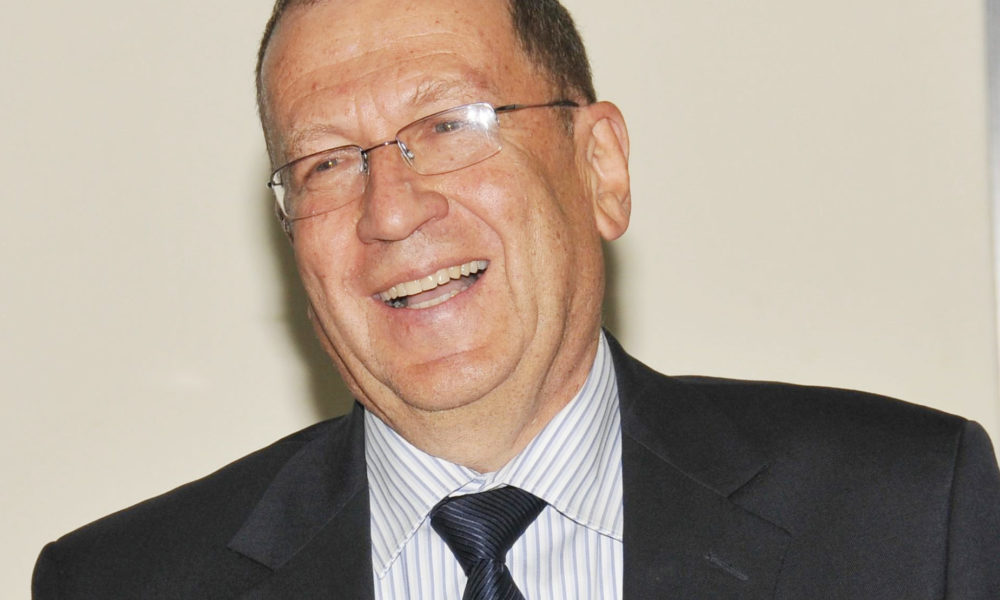Community
Eminent virologist highlights science’s social responsibility

Internationally renowned virologist and COVID-19 advisor, Professor Barry Schoub, has used a prestigious award to question whether science can play a greater values-driven social role.
Schoub, a household name since being called on to help the nation and the Jewish community in the COVID-19 fight in March 2020, was on 20 October awarded the Academy of Science of SA (ASSAf’s) Science for Society Gold Medal for 2021. The award is for excellence in the application of outstanding scientific thinking in the service of society.
In his acceptance speech, he referred to the so-called “war on science” spurred by the pandemic, and asked what prompted such large tracts of society to lose their trust in science.
Since that fateful day in March last year when he was asked to delay his vacation to help the community deal with the pandemic, this emeritus professor in virology at the University of the Witwatersrand and founder and former director of the National Institute for Communicable Diseases (NICD) has brought expertise, information, and sanity to bear on the global pandemic.
He is the chairperson of South Africa’s ministerial advisory committee (MAC) on coronavirus vaccines, which keeps the government abreast of all critical new developments, and has also played a crucial role in advising the Jewish community about COVID-19 as part of a panel of medical experts.
In its citation for the award, ASSAf said of Schoub, “He is undoubtedly a world-class scientist who has consistently used his energy, talents, and scientific prowess to combat diseases, build capacity, and promote health in South Africa, Africa, and globally, especially in relation to pandemic preparedness.”
Professor Salim Abdool Karim, the former chairperson of the South African MAC on COVID-19, nominated Schoub. “There is no question in my mind that he’s not only South Africa’s leading virologist but also a world leader in virology, vaccines, and pandemic preparedness,” Karim said.
“He is an exceptional candidate for the ASSAf Science for Society Award who has had a truly impressive impact on viral diseases and vaccination in South Africa, Africa, and globally.” Karim, is director of the Centre for the AIDS Programme of Research in SA, and the pro-vice chancellor (research) at the University of KwaZulu-Natal.
Schoub took the opportunity of the award to say, “Science has become extremely sophisticated, and it needs to restore the trust of the public. Communicating complexity is a challenge, but loss of trust results in a plethora of pseudo-science.”
Science’s ethical role and responsibility to society has become even more pertinent in the COVID-19 era, he said.
“It’s specifically in the biomedical sciences where the trust of society is so intrinsically crucial, and where, in spite of the excellence of our science, we may be failing somewhat,” Schoub said.
There are a number of issues at play, he said: the complexity of applied sciences and their dependency on political and financial interests for funding; the particular vulnerability of the health sciences to pseudo-science; general suspicion of scientists as an elite; distrust of privilege; and in SA, class and race distinctions.
“The 21st century has spawned a very significant, vocal, and often hostile lobby of opponents to science. Nowhere has this phenomenon been more challenging than what has mushroomed in the COVID-19 pandemic,” he said, referring to Facebook, Instagram, and Twitter users’ role in fuelling anti-vaccination, anti-masking, chloroquine, and Ivermectin.
Schoub believes better communication is a significant weapon in science’s armoury. “Scientists need training in communication – which they don’t have – and they should partner with professional communicators who can interpret complexity in a way the community can trust,” he said.
In his acceptance speech, Schoub questioned whether “our focus on productivity has perhaps attenuated our responsibilities and our obligations to society”. And he pointed to the “tragedy of global in-equity driven by financial and political agendas”, with the starkest example being inequity in access to vaccines, and vaccine hoarding by high-income countries.
“World Health Organization Secretary-General Dr Tedros Adhanom Ghebreyesus alarmingly warned us earlier this year that we could be facing a catastrophic moral failure. Is it an unrealistic dream that, for the future, mechanisms could be instituted to have vaccines not treated as commercial commodities in the global marketplace? How could science and scientists play a role in this quagmire of political, financial, and social interests?” Schoub asked.
“Whatever science we are doing, it needs to be predicated with the simple one-word question – why? Whatever scientific endeavour it is, it needs to be supplemented and enriched with a values quality, a quality of its meaningfulness to the society we serve. We can and we should lift science to be a virtuous as well as a utilitarian pursuit.”